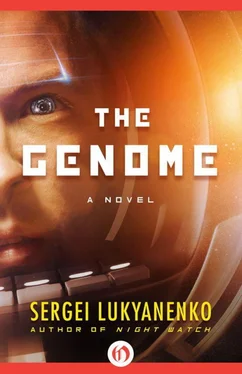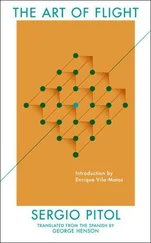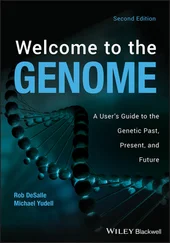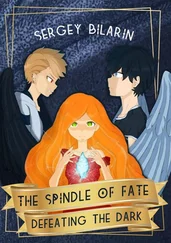Edgar paused, looked at Alex with a smirk. “Have you heard this song?”
“No.”
“It’s a very, very old Russian song. From the epoch when all were naturals. But it perfectly expresses the very point of specialization. Well, back to our young couple… so, they meet…”
He slowly joined his hands.
“Surprise… confusion… laughter… it’s so romantic! Moonlit night on the seashore, as I said. Gentle caresses in the wet sand. We had to make sure these two citizens, so different, but equally useful to society, never suffered because of their differences. We had to make sure their baby could become a human-amphibian, or a female steeplejack, or simply an ordinary natural. Whatever they wanted. And so, when the great promise of love is fulfilled”— the boy locked his fingers—“enter the S-organelle. The nucleic chains spin open, ferments shuttle along the DNA strings, checking for specialization. Snap! A gene is altered! Then there is a check of whether both parents have the altered gene. Both do? We leave it. Only one does? Move over, please! A spare copy of the gene is extracted from the organelle—the necessary bit is cut out and pasted in. The DNA strings quickly repair themselves before the fusion. Well now, let’s see what we got? An ordinary baby-natural! And if the little mermaid fell in love with an amphibian-human—no intrusions would be necessary. Their baby would be born in the water, easily drawing its first breath with the little gills inherited from the mother… And if there were two steeplejacks, male and female…”
“I get the picture, thanks,” Alex interrupted him.
Edgar stopped short. He smiled apologetically.
“I’m just in awe of my… predecessors’ mastery. You see, they had to create structures that were self-sustaining—who knows what might happen to a group of speshes, if they found themselves cut off from genetic engineers. And at the same time, these structures had to be able to return to their initial state in the course of one generation. The engineers accomplished that goal beautifully!”
“And what if a spesh-couple wanted to give their child a different specialization?”
“Well, then the engineers have to work on that some more,” Edgar admitted. “But can you imagine this situation actually happening? You decide to have a traditional nuclear family, wife and kids, the way it ought to be… and not wish your kids to have the kind of life you’ve had?”
“No, I can’t imagine that.”
“And there you have it.” Edgar smiled triumphantly. “Alterations of the body are a mere trifle. A task for beginners. The main thing is to change the psyche. To manipulate emotions. That is the hardest problem of all.”
“Great. Then help me solve it. Kim must fall out of love with me.”
“Why?” Edgar looked closely at Alex. “After all, I understand everything, and I don’t mind. Why should her love bother you?”
“No, not me. But with every passing day, Kim will be hurt more and more because her love can’t be requited. Right?”
“Right.” Edgar nodded.
“And I can’t even pretend to return her feelings,” Alex continued. “The tension will keep growing. And that will result… might lead to trouble.”
“And what do you want from me?”
“If you’re really the genius genetic engineer…” said Alex in an ingratiating tone, “you must know how to eliminate Kim’s feelings.”
“Whatever gives you that idea?”
“It is commonly known that there are several methods for doing it. When a certain profession is no longer needed, the speshes get reoriented for another one.”
“That’s the psychologists’ job. I can’t chase Kim back into a zygote and do corrective surgery.”
“You’re absolutely sure that nothing can be done?”
Edgar hesitated.
“I’m not a genetic engineer,” Alex said. “But I’m no idiot, either. Altered emotions are not only… not so much a result of reconfigured synapses. They are a result of altered adrenal glands. It’s about blood chemistry.”
“So what can I do?”
“Block some hormones. You know which ones.”
Edgar sighed and shook his head.
“Right. Block some hormones… The pituitary is not a campfire you can splash a little water on to extinguish a couple of coals. It’s all or nothing. Changes in character are brought on by a single, though very complicated, polysaccharide chain produced by the pituitary. A temporary block of its synthesis is possible, but that would lead to a shutdown of all the personal particulars at once.”
“And what would those be for Kim?”
The boy adjusted his glasses. Thought for a moment.
“Ruthlessness… first and foremost. Love—the one that was the result of artificial stimulation. That’s about it. Intellectual changes are not connected to pituitary hormones.”
“Let’s do it.”
“You think it’s so easy to interfere with a spesh’s organism? We’ll need a top-notch biochemical lab, with organic synthesis equipment. The ship’s sick bay won’t do.”
“We’re on a planet, Edgar. It may not be the most developed planet, but it’s quite civilized. An order could be put in and completed in two or three hours.”
Edgar said nothing.
“Are you really a genius geneticist? Or has your value been exaggerated?” asked Alex with a smirk.
“All right,” Edgar said, giving up. “But I think you’re making a mountain of a molehill, Alex. For Kim, love is a normal work mode, nothing bad would’ve happened…. Scribe!”
A small bent figure emerged from somewhere behind the columns. The skinny, hunched-up old man in a florid pointy hat and a brightly colored robe was holding a parchment roll in his hand.
“You won’t have any problems administering it,” said Edgar to Alex. “The active ingredient is stomach-acid resistant, so you can just mix it into food or wine.”
“Dosage?”
“Five or six milligrams. Put in a bit extra, a slight overdose won’t cause poisoning. Scribe, take this down!”
The old man nodded vigorously, sitting down at the foot of the throne. Squinted myopically at Alex and hurriedly averted his gaze. Extracted an inkwell and a long feather from somewhere. All Alex could do was shake his head at the sight of this pitiful entourage.
“Synthesis instructions…” Edgar began dictating.
Of course, Alex had overestimated the New Ukrainian science labs. The synthesis took a full five hours. The delivery robot, a flying disc of about three feet in diameter, landed near the ship shortly before the Zzygou and C-the-Third returned.
Alex waited for the identity chip to finish its work-cycle and a small green light to turn on in the polished metal side of the robot. Then he came up to it and opened a tiny trunk compartment.
The tiny vial had cost him an entire month’s salary. Three grams of white, opalescent liquid. Alex squinted his eyes, looking closely at the product Edgar had ordered.
Had he lied or not?
Could it really be that this liquid was capable of slowing down that most complicated of all biological mechanisms, which started up the minute a spesh was born and, after the metamorphosis, began working at full force? The ruthlessness of fighters, the cold benevolence of pilots, the nymphomania of haeteras—could all that be reduced to naught? And if so, how exactly would that occur? Abruptly, as when a device’s power is suddenly cut off? Or gradually, as when a car, with its engine turned off, slows down? Maybe the feeling induced by the geneticists really would disappear—but what if it had been so thoroughly internalized by the person as to become genuine?
These were questions that could not be answered theoretically—they had to be tested in an experiment.
Читать дальше











